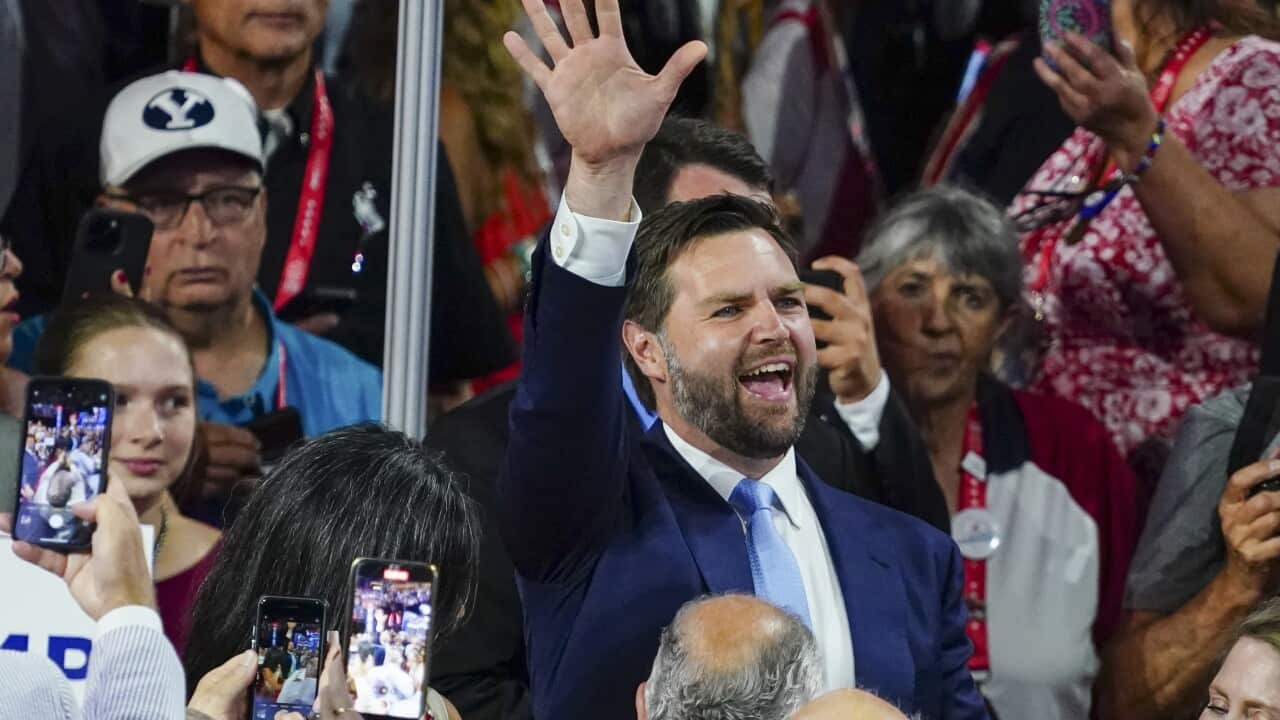The United States vice presidential candidates clashed on their approaches to the Middle East crisis, immigration, taxes, abortion, climate change and the economy during their first and likely only debate of the campaign.
The debate between Democrat Tim Walz and Republican JD Vance, broadcast from the CBS Broadcast Centre in New York on Tuesday (AEST), was heavy on policy disagreements but light on personal attacks.
The two rivals, who have savaged each other on the campaign trail, struck a cordial tone, instead saving their fire for the candidates at the top of their tickets, Democratic vice president Kamala Harris and Republican former president Donald Trump.
Here are the key takeaways.
Focus on presidential candidates
Vance questioned why Harris had not done more to address inflation, immigration and the economy while serving in President Joe Biden's administration, mounting a consistent attack line that Trump often failed to deliver while debating Harris last month.
"If Kamala Harris has such great plans for how to address middle-class problems, then she ought to do them now — not when asking for promotion, but in the job the American people gave her three and a half years ago," Vance said.
Walz described Trump as an unstable leader who had prioritised billionaires and turned Vance's criticism on its head on the issue of immigration, attacking Trump for pressuring Republicans in Congress to abandon a bipartisan border security bill earlier this year.
"Most of us want to solve this," Walz said of issues around immigration in the US.
"Donald Trump had four years to do this, and he promised you, Americans, how easy it will be."

The 90-minute debate took place at New York's CBS Broadcast Centre and was watched by millions. Source: Getty / Chip Somodevilla
Microphones muted
Moderators muted both participants at the same time at one point, to allow moderators to speak, in line with rules agreed to ahead of the event.
While the debate participants' microphones were not automatically switched off when it was not their turn to speak — as with earlier presidential debates in the campaign — the moderators had the right to mute them at any time.
CBS News moderator Margaret Brennan told the two candidates: "Gentlemen, the audience can’t hear you because your mics are cut," as co-moderator Norah O'Donnell began moving the debate discussion from immigration to the economy.

Republican vice presidential candidate JD Vance is a senator for the state of Ohio. Source: Getty / Chip Somodevilla
Candidates walk back on past comments
Both Walz and Vance tried to explain away past statements that undercut their credibility.
For Walz, it was media reports this week that he was not in Hong Kong in June 1989 during the deadly uprising at Tiananmen Square in China, despite having said several times he was there on a teaching trip.
In fact, Walz was in Nebraska at the time and did not travel to Hong Kong until August of that year.
Asked about the misleading claim, Walz delivered a meandering answer about growing up in a small town and being elected to Congress.
"I've not been perfect, and I’m a knucklehead at times," Walz said.
When pressed by the CBS News moderator, he said: "I got there that summer and misspoke on this."
Vance was again asked to reconcile his past criticism of Trump, including comparing him to Adolf Hitler, with his current position as number two on the Republican ticket.
"I was wrong about Donald Trump," Vance said, adding Trump "delivered for the American people" on a lot of things "that I didn't think he’d be able to deliver on".
Avoiding questions and controversy
Neither candidate appeared eager to talk about whether they would support a pre-emptive strike by Israel on Iran to disrupt the development of the latter's nuclear program.
The question, posed at the outset of the debate, was dodged by a visibly nervous Walz, who pivoted to a critique of Trump's record during his four years in office.
"What's fundamental here is that steady leadership is going to matter," Walz said.
"It's clear, and the world saw it on that debate stage a few weeks ago, a nearly 80-year-old Donald Trump talking about crowd sizes is not what we need in this moment."
Vance appeared to rib Walz for not addressing the question head-on but then segued into a description of his biography.
"My mother required food assistance for periods of her life," said Vance, who grew up in a working-class Ohio household.
Vance eventually returned to the question, saying a second Trump administration would support Israel's decision on the matter.
The Republican has had a sometimes-rocky campaign trail, at times becoming the target of mockery online.
During the debate, however, he was affable and cordial, even occasionally complimentary toward Walz.
He spoke about making the American dream "attainable once again" and detailed the basis for Trump's aggressive protectionist trade policies, saying the experts were "wrong" that increased foreign trade would boost the US middle class.
Election looming
It was the third and likely final debate in the campaign for the 2024 presidential election ahead of the 5 November election.
It followed on from presidential candidates and the , which led to Biden exiting the presidential race.

Kamala Harris' running mate Tim Walz is currently the governor of Minnesota. Source: Getty / Chip Somodevilla
That square-off did little to change the trajectory of an extremely close election battle.
While Harris has edged ahead in national polls, most surveys show voters remain fairly evenly divided in the seven 'battleground' states that will decide the November election.











